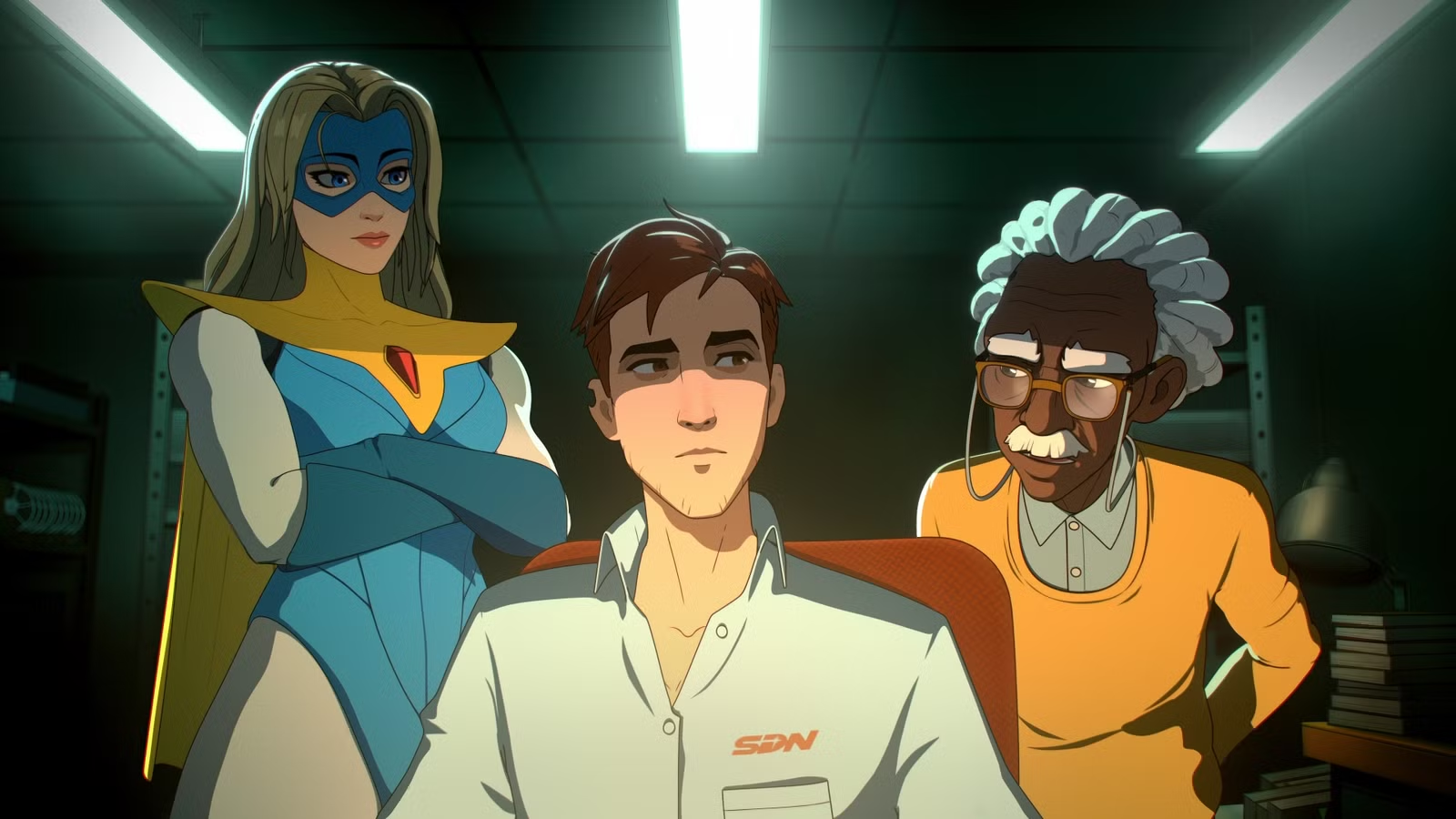Dispatch Not Really Being A Game Is What Makes It A Game Of The Year Contender

Dispatch is quite the anomaly. It both feels like a game pulled straight from 2012 and a vision of the future for narrative adventure games. With well-written characters, great animation, and performances that feel directly inspired by the Critical Role era (many actors even being Critical Role cast members), Adhoc Games delivers an experience that is instantly compelling. But it also isn’t much of a video game at all.
Telltale Game titles like The Wolf Among Us and The Walking Dead received similar critique amidst their considerable critical acclaim, including how the developer was simplifying much of the classic point-and-click formula for a new generation. But it did so in a way that prioritised storytelling and player choice elements first, and whether you liked it or not, it was a surefire recipe for success that paid dividends for years.
The developer shuttered in 2018 after a number of lucrative deals fell through, but its spirit lives on through games like Life is Strange, Firewatch, Until Dawn, and now — Dispatch. AdHoc is a literal as well as figurative torchbearer, being composed of many ex-Telltale staff. It’s an excellent game that has me hooked after just a few episodes, and all because it carries that Telltale spirit forward and evolves upon it in some fascinating ways.
Dispatch Is Telltale Games For The Critical Role Generation
In Dispatch, you play as Robert Robertson — previously known as Mecha Man — a man who used to be a superhero, but now finds himself struggling to make ends meet. He’s left to figure out his future now that he no longer has a means to fight crime across Los Angeles. Brought to life by a deep-voiced Aaron Paul, a strong performance helps make this lead easy to root for in spite of his apathy for the world around him.
After a few drinks with famous superhero Blue Blazer, Robertson is roped into becoming a dispatcher for local superhero agency SDN, a subscription service that sends out heroes to fight crime and help clients whenever they encounter trouble. The twist — you’re thrown an assortment of reformed supervillains to manage, keen to make your life a living hell.
It’s killer in its setup, making you care deeply about this world, its characters, and where exactly it will go in future episodes. I’ll admit it takes liberal inspiration from properties like Invincible, but it feels infinitely more light-hearted and inspired by many of the talents behind it.
Developed with the direct involvement of Critical Role and members like Laura Bailey, Travis Willingham, and Matthew Mercer featuring in the main cast, I can imagine a lot of fans going into Dispatch and feeling right at home with voices and personalities they’ve already spent a lot of time with. Most characters are instantly likable and packed with intrigue, but also ripe with enough superhero conventions that you can figure out what they’re about in seconds.
I wanted to learn more about and do more in this world, but the gameplay isn’t designed to accommodate that. Aside from dialogue choices, optional quick-time events, and a few cool minigames helping spread out the narrative, Dispatch isn’t much of a video game at all.
Other cast members include JackSepticEye, MoistCr1TiKaL, Alanah Pierce, and Jeffery Wright. I hope you’ve spent a lot of time on the internet over the past decade.
You Spend More Time Watching Dispatch Than Playing It
Classic Telltale Games often saw you taking control of a character as you walked about a selection of small environments to speak with characters, interact with objects, and solve puzzles before advancing the narrative.
The story could progress in a few different directions depending on the decisions you made, but otherwise it was largely linear and wanted to take you on specific adventures over and over again. Dispatch is much the same, and right now, I feel unsure about exactly how much my decision-making will impact the story to come.
But man, I’m incredibly invested. Conversations require you to make a handful of choices in which you can influence the unfolding story and feelings of the surrounding characters, such as deciding to lean in for a drunken kiss with Blue Blazer in the first episode or pull away out of awkwardness.
Little chickens that will come home to roost in a variety of ways, but mostly it’s about going along for the ride and reacting when necessary. There is no controlling Robert in Dispatch beyond dialogue choices and optional quick-time events (which you can switch off before starting a new game if you don’t want the trouble) that accompany action scenes.
The most interaction comes through the titular dispatching, in which you will sit down at a computer and command your roster of heroes to solve crimes best suited to their abilities. I love the fast pace of these sections and how they naturally lead into more involved parts of the narrative, but once again, I’m unsure if doing well or absolutely screwing up during such sequences matters much at all. In all honesty, though, I don’t care.
Dispatch simplifies the Telltale formula to an extent that this might as well be a TV show, but this willingness to strip so much away and only keep the bare essentials might end up being its greatest strength.
The animation is superb, the writing is sharp, and the performances are so strong that Adhoc doesn’t need to overextend the video game qualities of Dispatch to excel. I have no doubt this will turn some people off, but judging by its early reception, that will not matter in the end.





